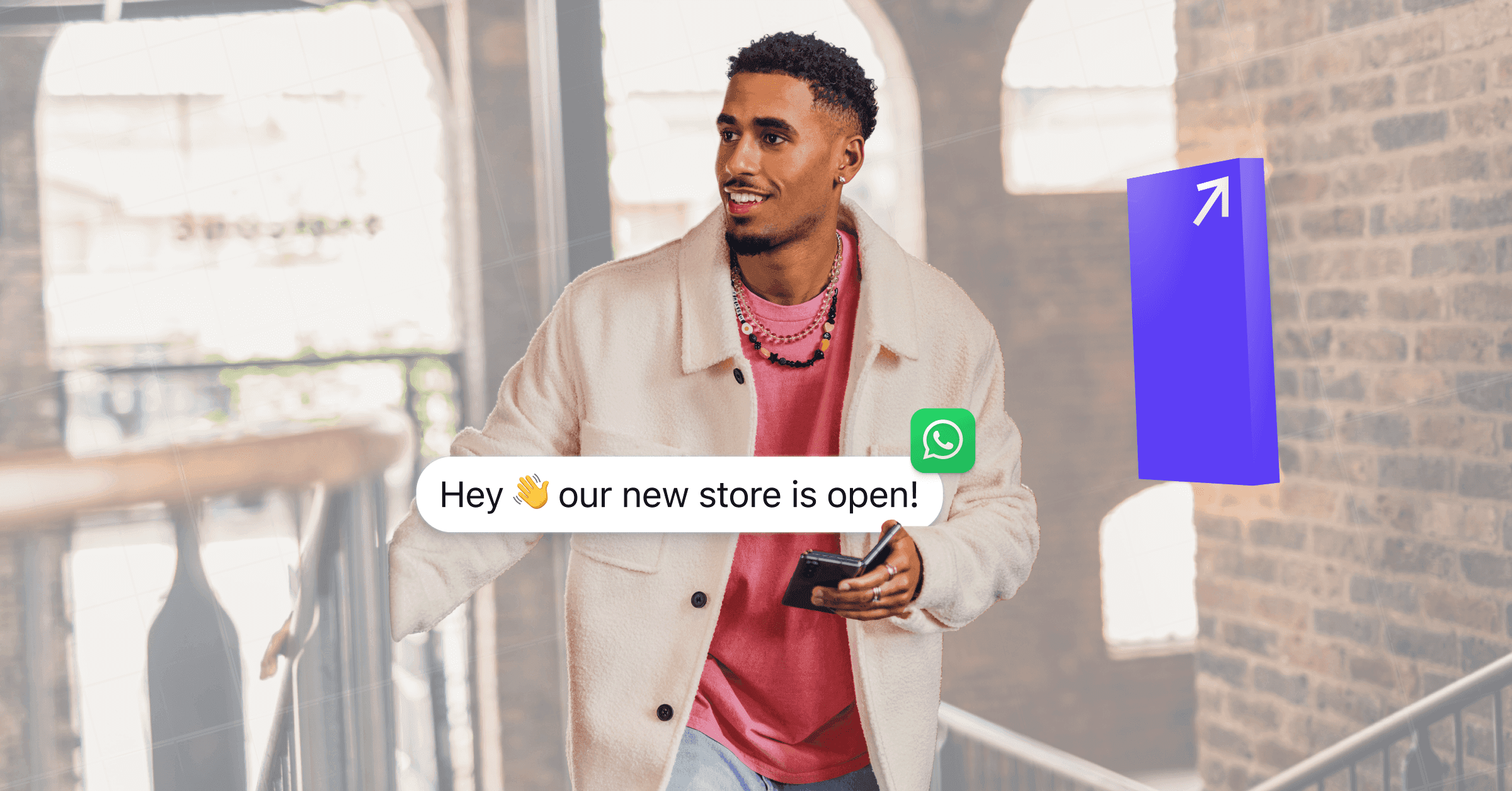13 Mar 2023
WhatsApp Business is now the go-to customer engagement channel for retail businesses. New features, widespread use, and lowering data costs shifted businesses-to-customer communications from SMS to WhatsApp. One industry that adopted WhatsApp Business and is now reaping the rewards is the retail industry.
At Cue we like to think that we possess expert-level knowledge of the retail industry, having produced successful retail mobile marketing and customer support campaigns for nearly 8 years.
In this post, we unpack some of the ways our retail clients use WhatsApp Business.
Sending broadcast messages
Push notifications have a 60% higher open rate than Email, making WhatsApp an ideal channel to send timely notifications to customers.
Get the word out to customers. Send new promotional leaflets. Alert customers to new opening hours. Invite them to take part in your timed sale. Let customers know when a new range of products has become available to purchase. All of these notifications can be sent directly to customers’ home screens.
Customers have to opt-in to receive WhatsApp messages from any given business. A customer is opted in once they have sent a message to the WhatsApp Business profile.
WhatsApp Business Message Types
The WhatsApp Business API allows brands to send two types of messages to customers:
Session messages are private messages between a brand and a customer just like the peer-to-peer version of WhatsApp.
Template messages are broadcasts sent to customers after they have engaged and ended a chat session.
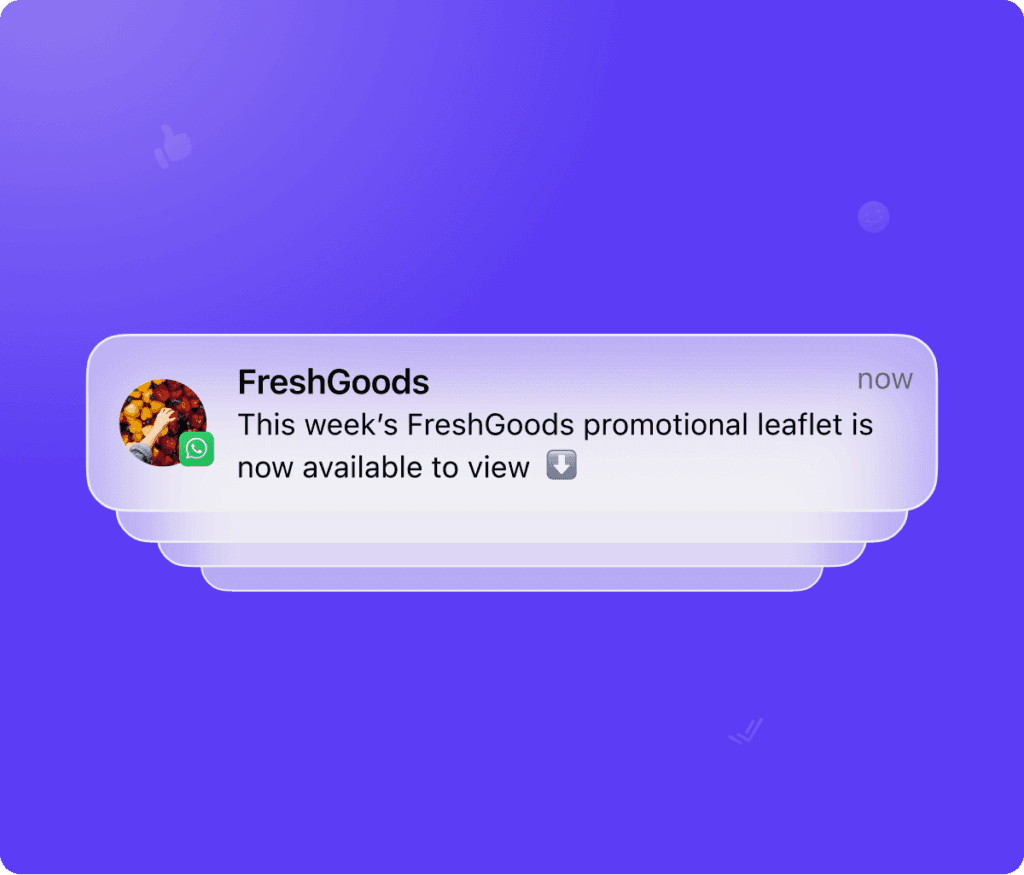
Directing customers to your store
Imagine a world where brands direct customers to their nearest store no matter where the customer is. That is a reality with WhatsApp location services and Google Maps. When enabled and integrated, customers send a location pin to a business on WhatsApp and in return, receive detailed directions to their nearest store.
Save Hyper, the largest independent grocer in South Africa uses the WhatsApp store locator to great use with thousands of direction requests sent by customers in 2022.
Not only can you market your new products to customers but you can also help customers find a store to purchase from.
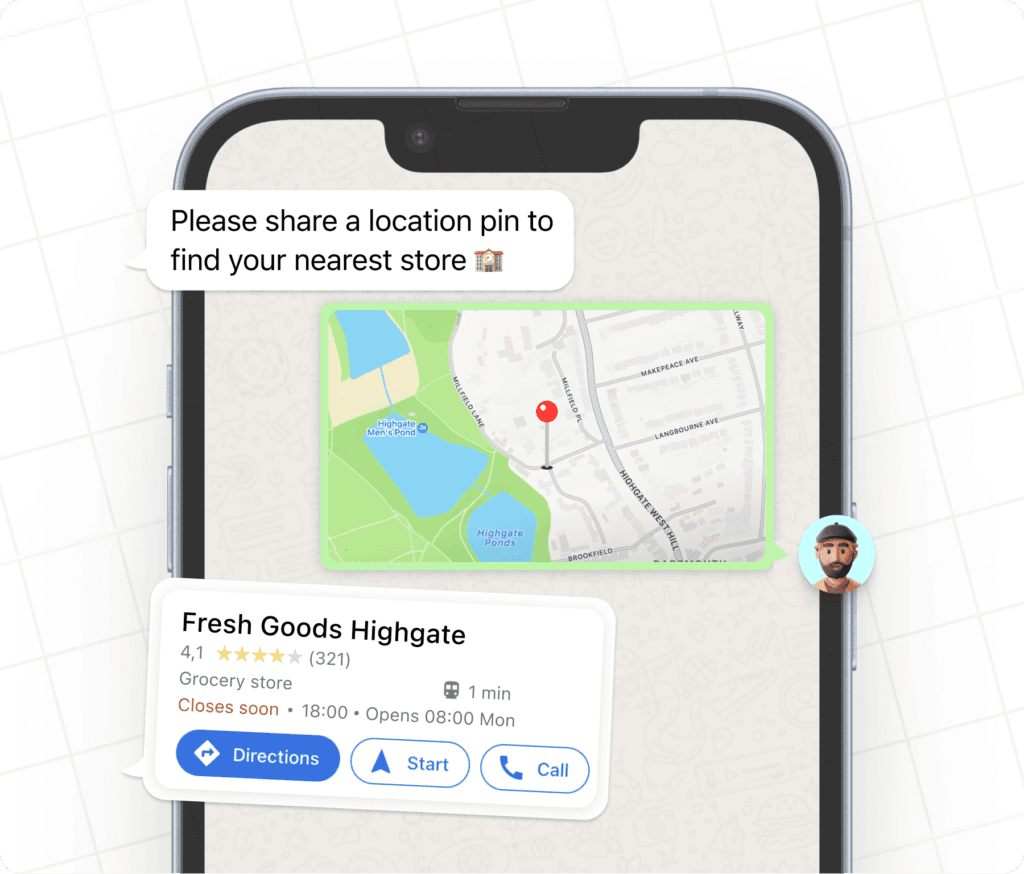
Building customer loyalty
79% of consumers say loyalty programs make them more likely to continue doing business with brands.
Loyalty programmes are still key to customer retention but they look a little different these days. While loyalty program transactions traditionally took place offline, many businesses have modernised and now use digital systems to track and reward customer loyalty.
Using custom WhatsApp Business API integrations, customers can easily sign up and earn loyalty rewards. Whether the reward is a discount coupon, an exclusive 2-for-1 deal, or free data.
Delivering fast customer service
Fast and accurate service is the goal of every customer support team but they are often held up answering simple requests. But leaving consumers with urgent requests on hold will greatly decrease customer satisfaction.
Custom chatbots can answer mundane and repetitive customer service queries on WhatsApp. These chatbots can explain terms and conditions, let customers know what time your stores open, and much more.
Live chat platforms are also becoming a popular way to engage customers on WhatsApp and other popular channels. These real-time engagement platforms trump chatbots when it comes to resolving complicated customer issues.
This allows retail brands to use chatbots and live chat tools on WhatsApp to enhance customer experiences and satisfaction.
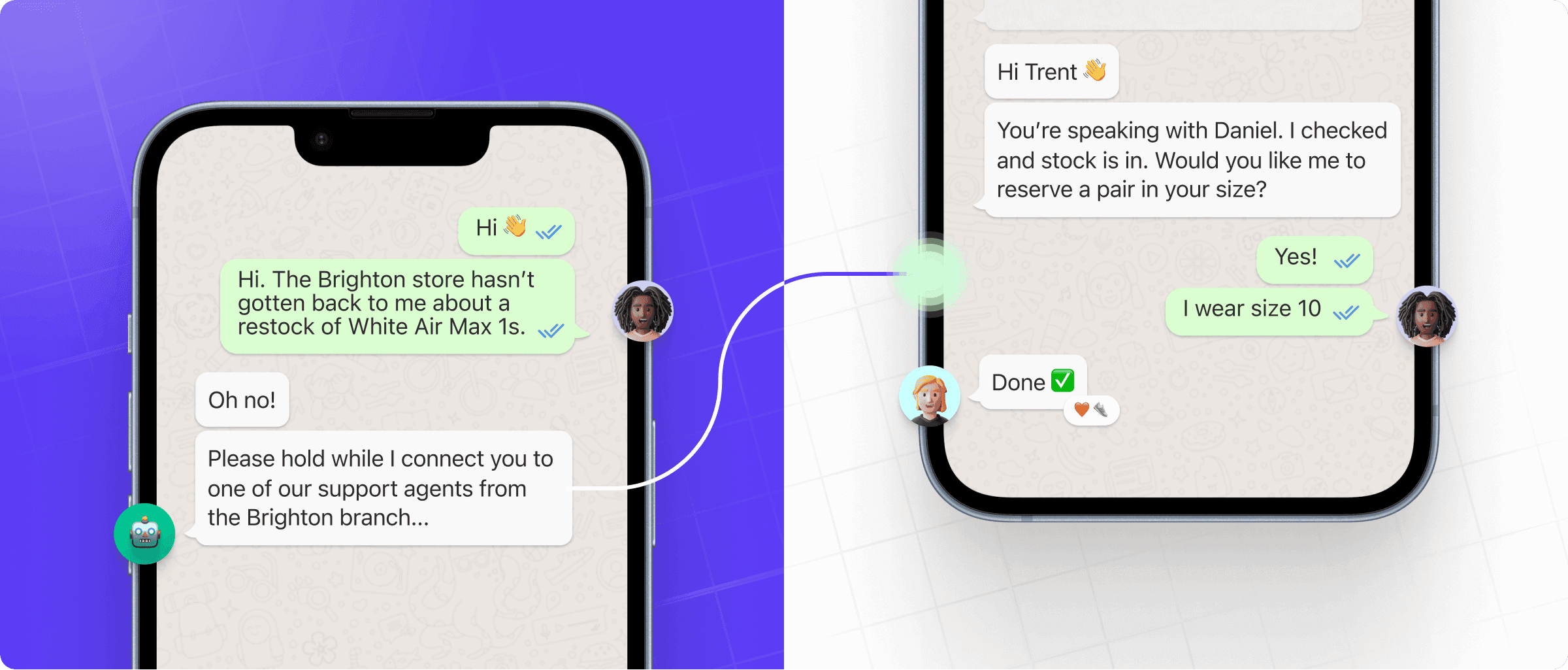
Collecting customer feedback
The only way to know if customers are satisfied is to collect their feedback. WhatsApp makes this easy with the use of option-based feedback forms, free-form text submissions, or by simply sending a link to a feedback form on your company website.
Collecting critical customer data will ensure that your customer service department always delivers the relevant, speedy, and helpful support
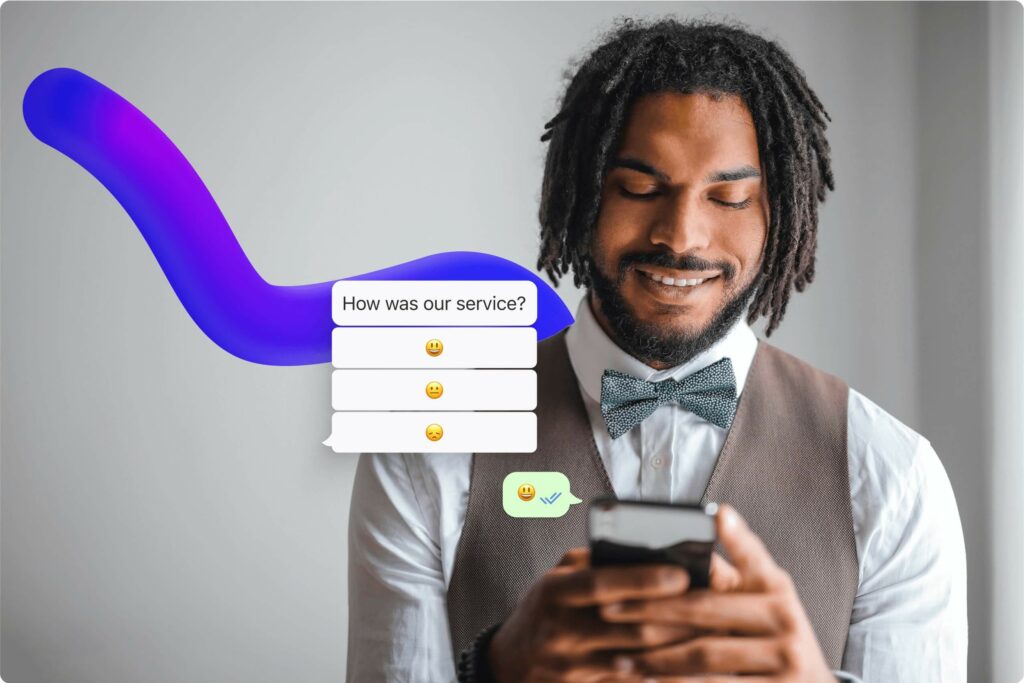
Upsell and cross-selling on WhatsApp
Conversational commerce, the latest customer engagement buzzword, is a term coined to define the act of assisting the selling process using chat. Retail businesses can also get in on the action by encouraging customer service agents to up or cross-sell retail products and goods when customers engage them on WhatsApp.
According to a study by Hubspot, 72% of salespeople who upsell and 74% who cross-sell say that it drives up to 30% of their revenue.
Keeping customers up to date automatically
Most physical retail stores shifted their offering online during the pandemic and many of them didn’t do it smoothly. The customer experience seems like an afterthought. Brands with the right technical teams can easily integrate E-commerce platforms into WhatsApp using the business API. This allows for important order updates to be sent automatically as the package makes its way from the warehouse to the customer’s front door.
The Cue Conclusion
The WhatsApp Business API offers a wide range of customer service featured for retail brands. Reach out to our team to see how we can help your retail brand to use WhatsApp Business.
